One of the major benefits of owning real estate is that it tends to appreciate in value if you keep up with maintenance and there are no major changes in the housing market. However, that doesn’t mean it will automatically increase in value no matter what happens, and many factors can result in lower property values. So, to help ensure you get the highest possible price for your home, here is a look at what brings down property value.
Factors That Bring Down Property Value
1. Deferred Maintenance
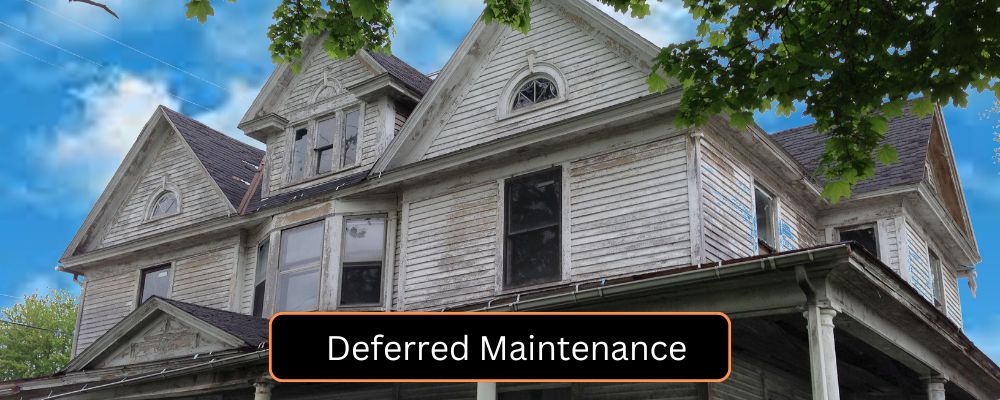
Deferred maintenance is one of the main issues that can lower the market value of your home. You will lose out on a large pool of potential buyers if your home is not move-in ready and requires significant investment to upgrade it to a livable condition.
Deferred maintenance could be anything from peeling paint to leaky plumbing. If the problems are mostly cosmetic, then they may only knock a few thousand dollars off the sale price. But if the issues are structural and require significant investment to remedy, they will impact the type of buyers who are interested in the property.
For instance, you may get some interest from a cash buyer who plans to flip the property, but they will only buy it if you offer a major discount.
What To Do About It:
The best way to prevent your home from falling into disrepair is to perform routine maintenance on a regular basis and respond to repairs as soon as possible. It’s often more cost-effective to get ahead of the problem than to wait until it’s already a serious issue.
If you’re looking to sell your home and already have deferred maintenance, you’ll need to consider how much the repairs will cost and how much they may impact the sales price. In some cases, it may be cheaper to sell the home as-is rather than take the time to go through with the renovation if the costs will be too high.
2. Outdated Kitchen or Bathroom
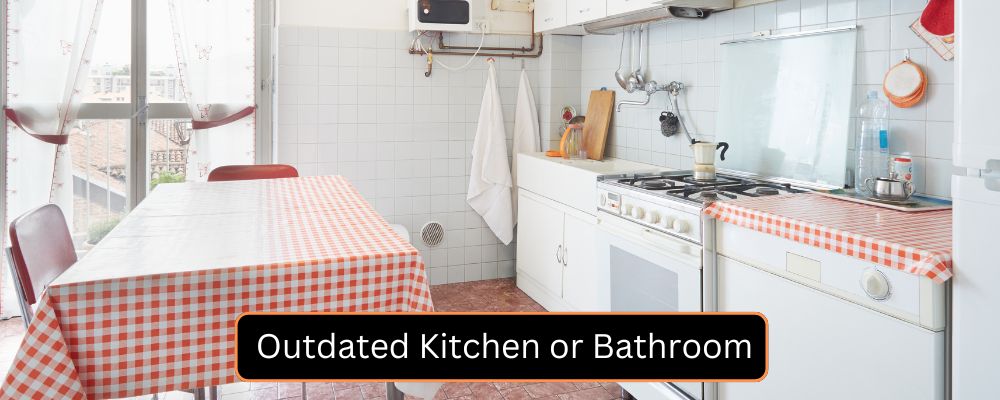
An outdated kitchen or bathroom is one of the most overlooked factors that can lower your property value. Modern homebuyers want to see appliances and fixtures that feel current and won’t need to be replaced or repaired soon. Otherwise, they may see your home as a fixer-upper, which can significantly decrease the value of the offers you receive.
You don’t necessarily need to invest in the most cutting-edge and expensive appliances on the market, especially if that is rare for the neighborhood. But if your kitchen or bathroom looks like it came straight out of the ’70s, it may be time for an upgrade.
What To Do About It:
In some cases, a simple paint job or upgrade of the appliances may suffice. However, if the entire room has an outdated style, you may want to consider a full renovation. Even if it’s a significant investment, it may be worthwhile to avoid making potential buyers think the entire home is dated when it may only be specific rooms.
3. Mold and Mildew
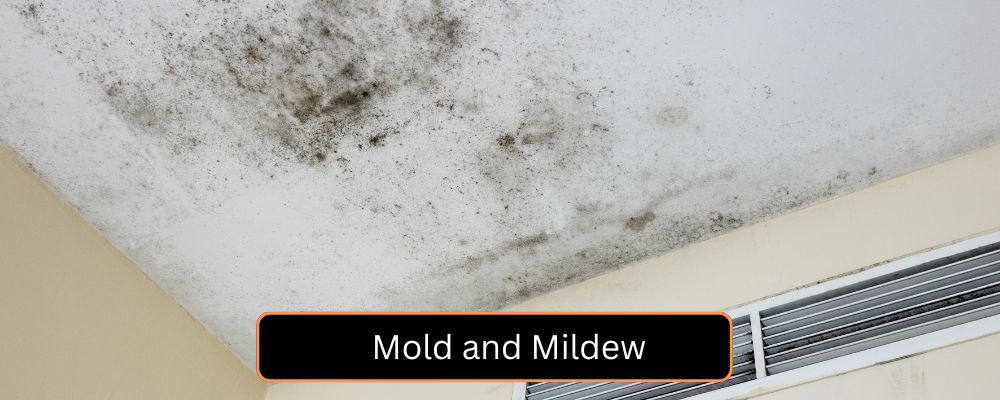
Mold and mildew are another major red flag that can significantly impact your property value. Mold is not only unsightly, but it can also pose a health risk and cause damage to the home if it goes unchecked for too long. Getting rid of mold can be costly and time-consuming. Not to mention, it makes the home appear dirty and neglected. So, any sign of mold or mildew can lead to a major decrease in the market value of your home, even if the problem is minor.
What To Do About It:
If you spot any signs of mold in your home, get rid of it as soon as possible. You may be able to eliminate it with a deep cleaning, although if the problem is severe, you may need to bring in a specialist.
It might cost you some money, but if there is any mold in the home, it will be discovered during the due diligence period when the buyer conducts an inspection, which could jeopardize the sale. So it’s always best to get ahead of the problem before putting the property on the market.
4. Home Improvement Projects Gone Wrong
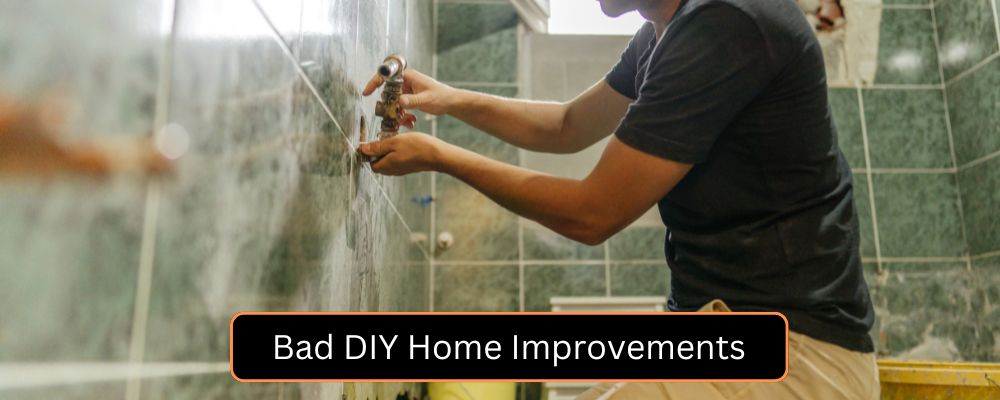
While quality home improvement projects can greatly improve the value of your home, sloppy or incompetent jobs can have the opposite effect. Many people consider themselves handymen but don’t always have the skills to do the job correctly. Signs of a bad DIY home improvement project could be uneven surfaces, exposed wiring, crooked tiles, large gaps in between structures, etc. If it’s obvious to the untrained eye that an amateur constructed an important feature of the home, it’s going to have a major impact on the property value.
What To Do About It:
The easiest way to prevent DIY projects from impacting your home’s value is to avoid them in the first place. Before engaging in any home construction work, ensure you have the necessary skills to do it right or hire a professional. If it’s too late, you can always hire someone to come in and fix the damage.
5. Roof Damage
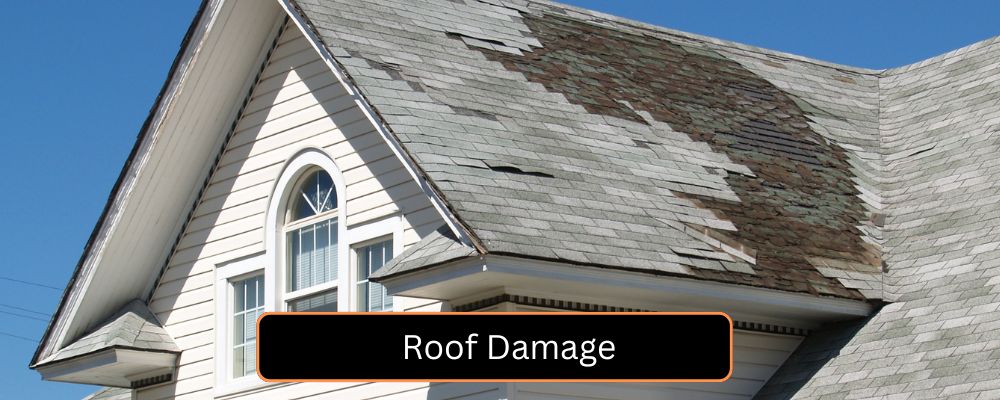
What brings down property values more than roof damage? The roof is one of the most important structural elements in a home. Even if the roof is structurally sound, things like damaged shingles or excessive debris can be a major red flag for potential buyers. Leaky roofs are also known to significantly lower property values. Even things like damaged gutters or warped flashing can also have an impact. So, before you list your property, make sure to carefully inspect the roof and address any problems.
What To Do About It:
Depending on the extent of the damage, you may be able to repair it yourself or hire a professional. But if the problems are widespread, the roof may need to be replaced entirely. If the damage was recent and caused by something out of your hands, such as a weather event, you may be able to call your insurance company and file a claim.
6. Bad Landscaping
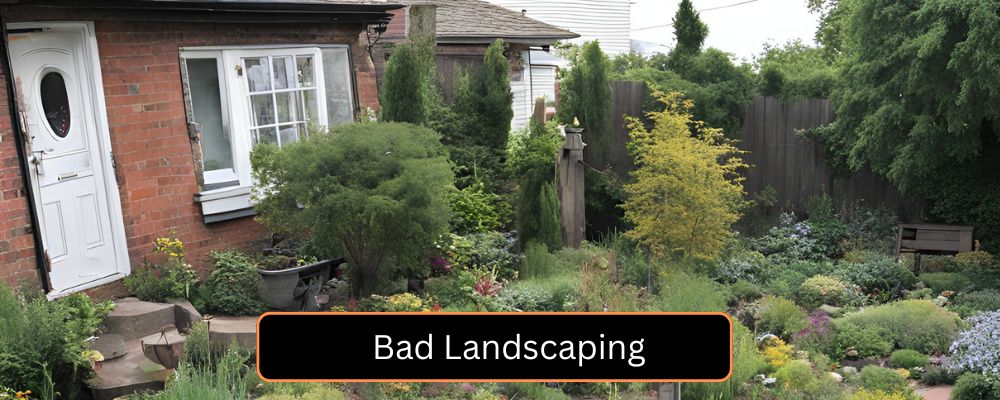
Bad landscaping can also lead to less interest from buyers and result in a lower property value. Even if the interior of the home is in great condition, many potential buyers may not even give it a chance if the exterior is unappealing. Bad landscaping could include things like an overgrown or dying lawn, unkept hedges and shrubbery, weed infestations, large holes or dirt patches, and so on. Although it may not be a deal breaker, bad landscaping can make a poor first impression on buyers and may decrease the pool of home shoppers willing to view your property.
What To Do About It:
The good news is that bad landscaping is actually a fairly easy thing to fix. You may be able to improve it considerably with a few hours of yard work. You could also hire a landscaper to help spruce it up or work with your real estate agent to determine what needs to be improved.
7. Proximity to Certain Businesses

Although many of the factors that can lead to a decrease in property values are related to the home itself, other factors are external. For instance, if a new fast food restaurant opened up next door or a nightclub moved in down the block, it may scare away some buyers due to the potential noise or foot traffic the businesses attract. Many residential neighborhoods are zoned to prevent businesses from coming in and lowering property values, but it depends on the local laws where you live.
What To Do About It:
This issue might be more difficult to deal with than some of the other factors, as it may be out of your control. But you can always attend local planning board meetings and other community events to find out what’s going on in the local real estate market and attempt to fight any issues that may impact you personally. It also helps to ask your real estate agent about the local zoning laws before you move in to determine if this may be an issue.
8. Declining Neighborhood
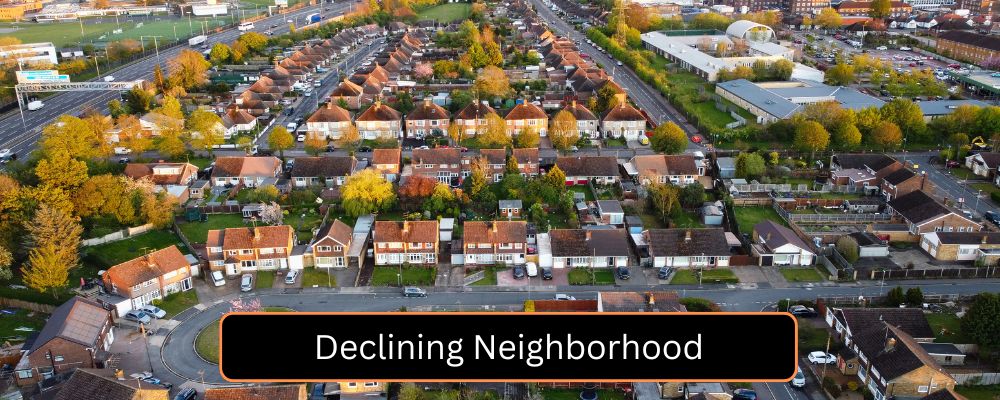
Most homeowners want to invest in a neighborhood that’s on the rise. So, if there are signs that the area may be declining, it can impact your property value. Red flags that a neighborhood may be declining include many vacant homes, disheveled or overgrown lawns, or signs of vagrancy or crime. Although it may have nothing to do with the condition of your home, it will impact the amount of interest you receive from buyers.
What To Do About It:
This is another issue that may be somewhat beyond your control. But you can take steps to prevent the neighborhood from going downhill before it happens. If you have a homeowners association or other community organization, you can consult them about improving any derelict homes or unkempt properties in the neighborhood. If you notice any criminal activity in the area, report it to the police or neighborhood watch program immediately.
When all else fails, and you feel like the decline in the neighborhood is out of your hands, you should try to sell as quickly as possible before your property value takes a serious hit.
9. Rising Interest Rates

Another factor that may impact supply and demand in the local real estate market is changes in interest rates. When interest rates are low, more buyers can get access to capital, which often leads to higher offers. However, when interest rates are high and money is tight, the pool of potential buyers is smaller, and the lack of competition may lead to lower offers. The home may otherwise be in great condition, but if no one is able or willing to pay top dollar, you may have to take what you can get.
What To Do About It:
Unfortunately, there isn’t much you can do to influence the actions of the Federal Reserve. However, you can pay attention to tends in the housing market and try your best to time when you put the home on the market. These things tend to be cyclical, so if you pay attention to the news, you can often predict when a rate hike is coming. Or, if you find yourself trying to sell your home while interest rates are on the rise, you can always wait a while and see if they start to drop back down.
10. The Home Is Too Personalized

Not everyone shares your sense of style. While it’s ok to add a bit of personality to the interior design, you want to avoid going overboard. For instance, you may love the color orange but that won’t be everyone’s first choice for the living room. Even things like family photos or odd knickknacks can distract some buyers and make it difficult for them to picture themselves living in the home.
What To Do About It:
This is another issue that is fairly easy to fix. Try to paint the home with a neutral color palette before putting it on the market (if it isn’t already). Remove as many personal items as possible and try to make the home appear as impersonal as possible, at least during showings.
Should You Fix These Issues Or Simply Sell As Is?
Whether you decide to fix these issues or sell the home as-is depends on how extensive they are and what you can afford. If you want to get top dollar for your home, you’ll want it to be as close to move-in ready as possible. Buyers tend to make higher offers if they have fewer issues to fix themselves.
However, there is a point that it may not make financial sense. For instance, if you have serious structural damage that will require more time and money than you have to spend, it may be better to take whatever offer comes your way than get deeper into a hole.
Before you decide, try to determine how much the repairs will cost and how much it could negatively impact your property value. If the former is lower than the latter and you have the means to correct the issue, it makes sense to fix them. But if the opposite is true or you simply don’t have the funds needed to deal with all the problems, you may want to skip the hassle and sell the home as-is.
Final Tips For Restoring The Value Of Your Home
Restoring your home to market condition is a great way to ensure you get the highest and best offer possible. However, it may take a significant investment of money and time in many cases. So, before you begin any major renovations, make sure to weigh the pros and cons to determine if the investment will pay off in the long run.




